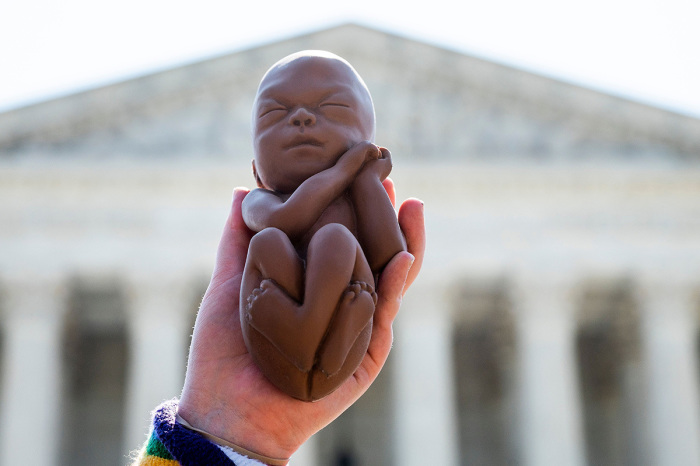
The Montana Supreme Court has struck down three abortion regulations, drawing a sharp rebuke from the state’s Republican governor, who accused the justices of rejecting modern medicine.
In a 6-1 opinion published Monday, the Montana Supreme Court ruled that a law prohibiting abortions after 20 weeks gestation, a measure requiring pregnant women to have an ultrasound before undergoing an abortion and legislation requiring women to visit a doctor in-person before obtaining an abortion pill were unconstitutional.
The laws in question were passed by the state’s Republican-controlled legislature and signed into law by Montana’s Republican Gov. Greg Gianforte in 2021. However, a lower court’s preliminary injunction has put the rules on hold since 2021. Last November, Montana voters approved a measure establishing a right to abortion in the Montana Constitution.
The precedent set by the 1999 Armstrong decision loomed large in Monday’s ruling. That case was brought by medical providers and a clinic challenging the constitutionality of two statutes that do not allow physician assistants to perform abortions.
The ruling states that the 1999 case determined that the right to privacy in Article II, Section 10 of the Montana Constitution “guarantees each individual the right to make medical judgments affecting her or his bodily integrity and health in partnership with a chosen health care provider free from government interference.”
It also protects “‘the right of procreative autonomy,’ which encompasses a person’s ‘right to seek and to obtain a specific lawful medical procedure.'”
In addition to Article II, Section 10, the opinion cited the law implementing restrictions on access to the abortion pill — which also requires medical providers to provide information about abortion pill reversal and risks associated with the procedure — as a violation of Article II, Section 7. The relevant portion of the Montana Constitution declares, “No law shall be passed impairing freedom of speech or expression.”
The Montana Supreme Court interpreted Article II, Section 7 to mean that “the government may not regulate speech based on its substantive content or the message it conveys” and that “the government must abstain from regulating speech when the specific motivating ideology or the opinion or perspective of the speaker is the rationale for the restriction.”
In a statement, Gianforte accused the “activist justices” of continuing a “series of attacks on commonsense measures to protect the life, health, and welfare of mothers and their babies.”
The governor believes the court is “clinging to a shaky, outdated ruling and failing to account for the U.S. Supreme Court’s decisions,” referring to the 2022 Dobbs v. Jackson Women’s Health Organizationdecision determining that the U.S. Constitution does not contain a right to abortion.
“They’re overreaching, making law from the bench and rejecting the will of Montanans’ duly-elected representatives who make laws,” he said.
“These activist justices rejected modern medicine and are instead clinging to medical care available more than 50 years ago,” Gianforte added. “Ultimately, they have failed the lives, health, and welfare of mothers and their babies, and they should be ashamed.”
Gianforte vowed that he “will continue to defend the lives of those who cannot speak for themselves” and “pray for changed hearts as we work to bring about a culture of life for every Montanan, born and unborn.”
Voters in eight additional states have passed similar constitutional clauses to protect abortion since the Dobbs decision in the 2022, 2023 and 2024 elections: Arizona, California, Colorado, Maryland, Michigan, Missouri, Ohio and Vermont.
While voters in Nevada supported such an amendment, it must go before voters a second time in 2026 before it can take effect. Similarly, New York voters approved an Equal Rights Amendment that adds abortion as a protected characteristic under the state constitution.
The pro-life advocacy group Susan B. Anthony Pro-Life America lists Montana as one of 26 states with few or no limits on abortion. Current Montana law, defined by the Armstrong precedent, allows abortion up until viability, referring to the point in pregnancy where the unborn baby is able to survive outside of the womb.
Ryan Foley is a reporter for The Christian Post. He can be reached at: ryan.foley@christianpost.com


















